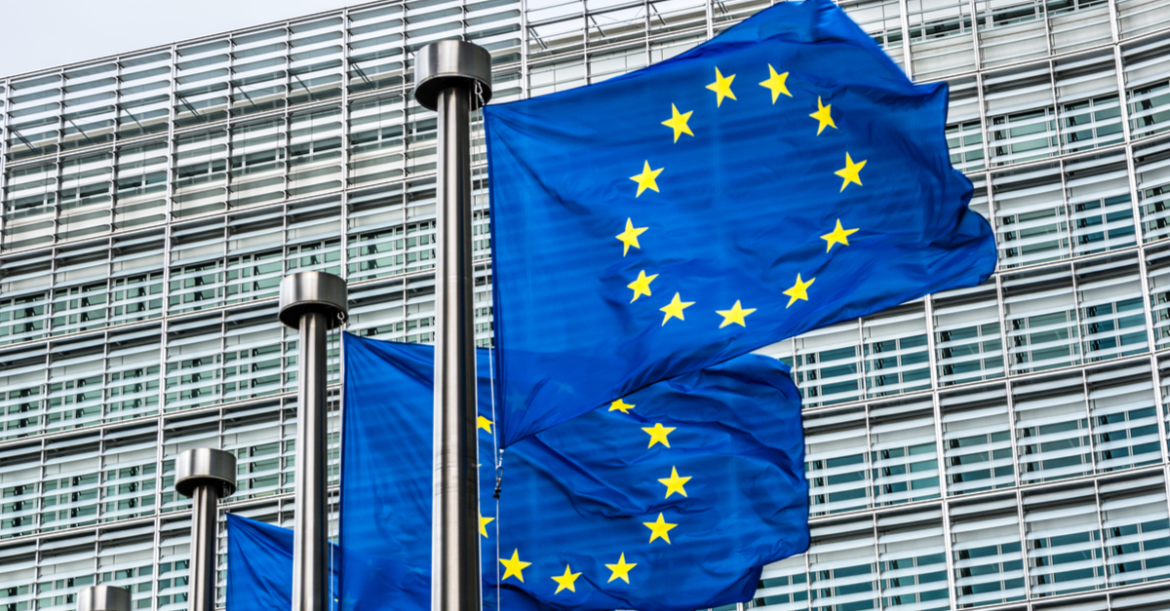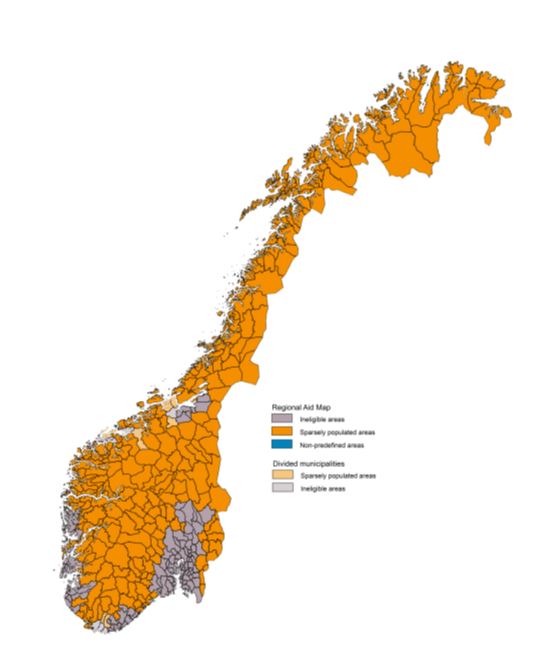State aid: New rules adopted allowing for aid to match subsidies granted under US Inflation Reduction Act

Yesterday, the European Commission adopted new state aid guidelines, the Temporary Crisis and Transition Framework (TCTF). A salient feature, amounting to a watershed moment in European state aid law, is a matching rule, under which EEA States, for certain key green industries, will be allowed to grant aid to match aid proposed by third countries, such as US subsidies under the Inflation Reduction Act.
Such matching aid can be granted to investments in batteries, solar panels, wind turbines, heat-pumps, electrolysers, and equipment for carbon capture usage and storage (CCUS), as well as for related key components and raw materials.
In order to be eligible for matching aid, the project must be located in a so-called “assisted area”, identified as such in a so-called regional aid map. Most of Norway is defined as assisted areas (all the areas that are not marked in gray).

If an investment takes place in at least three EEA States this regional requirement is slightly eased.
The aid proposed by a non-EEA state must be well documented. It must furthermore be demonstrated that the matching aid does not exceed the amount needed to incentivise the undertaking to locate the investment in the EEA (funding gap). The aid must have incentive effect, meaning that it must lead to the beneficiary carrying out an investment that it would not do without the aid. Aid must not lead to the relocation of production activities between EEA States.
The matching aid can be in the form of a direct grant, a tax break or other. It must be awarded before 2026.
In addition to the matching rule, the TCTF provides guidance on how the compatibility of other kinds of transitional aid measures will be assessed.
Aid under the TCTF has to cleared by Brussels before being put into effect. BAHR expects the EFTA Surveillance Authority (ESA), who is tasked with assessing the compatibility of state aid from Norway, to announce shortly that it will apply the Commission’s TCTF.
Yesterday, the Commission also endorsed the so-called Green Deal GBER amendment. This represents a major overhaul of the block exemption rules to i.a. allow for more green aid. The thresholds for how much aid can be bloc exempted have been substantially increased. The Commission has extended the duration of the GBER by three years. It now applies until the end of 2026.
Aid granted on the basis block exemptions does not have to be cleared by Brussels before being put into effect. The GBER amendment requires incorporation into the EEA Agreement by a decision of the EEA Joint Committee. Given that the current version of the EFTA GBER expires by the end of the year and given the clear benefits of the new rules to the EFTA States, BAHR expects the incorporation into the EEA Agreement to be processed relatively swiftly, well before the end of the year.
